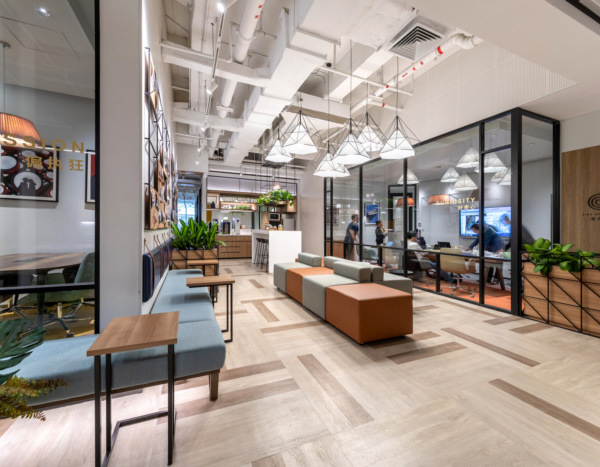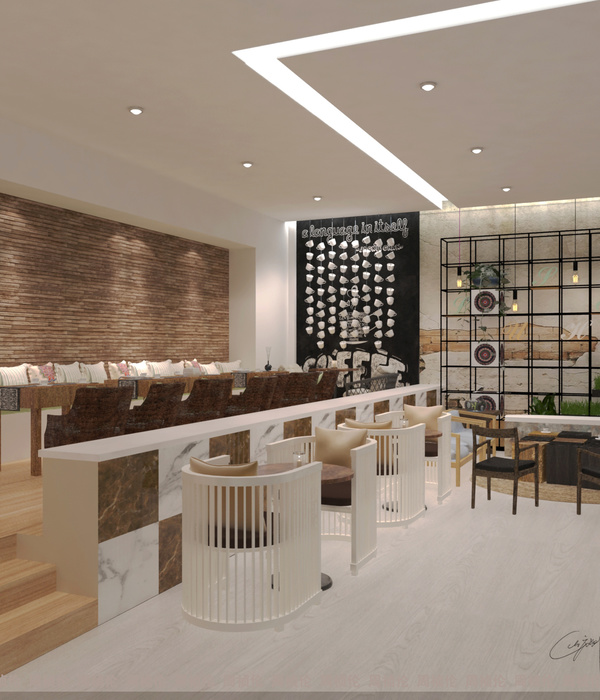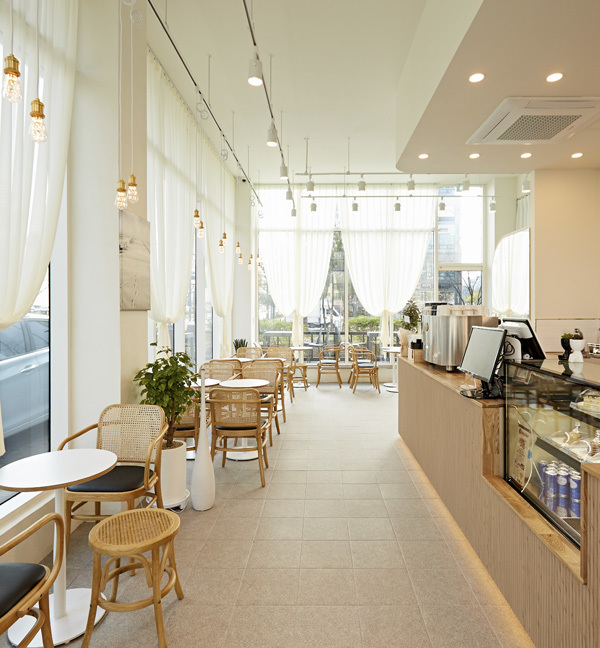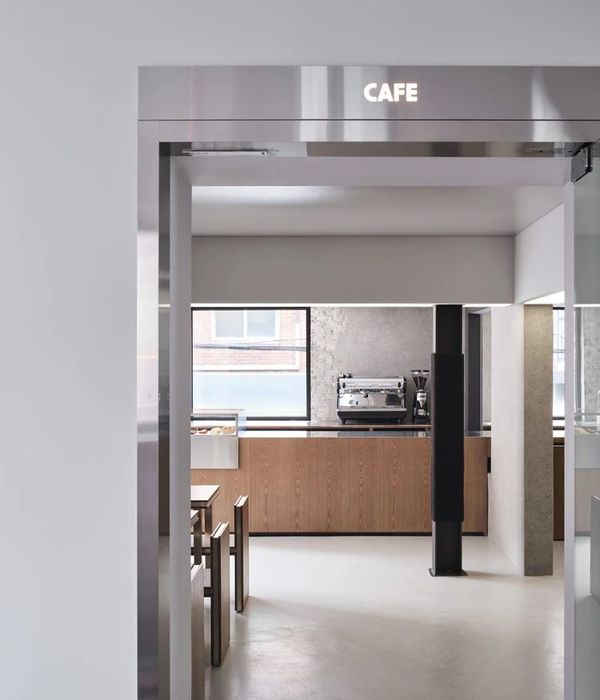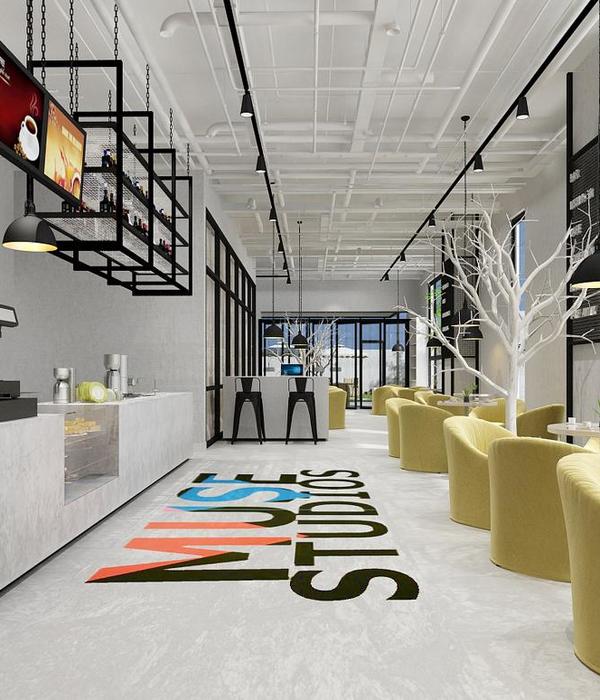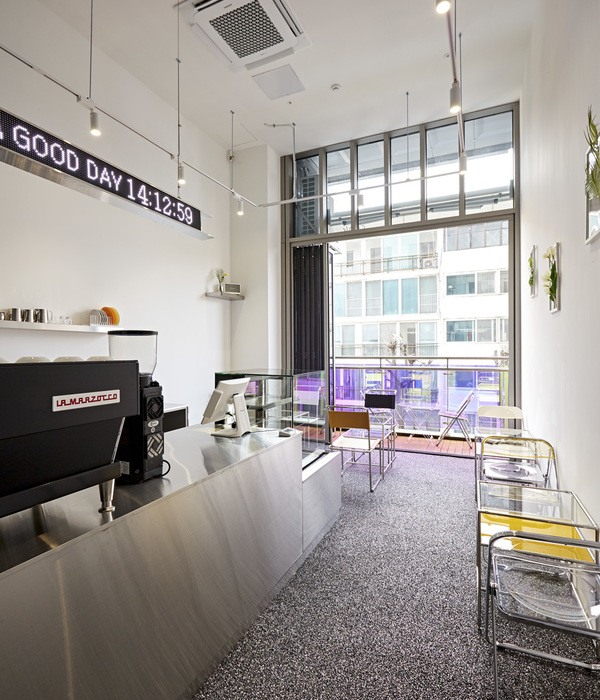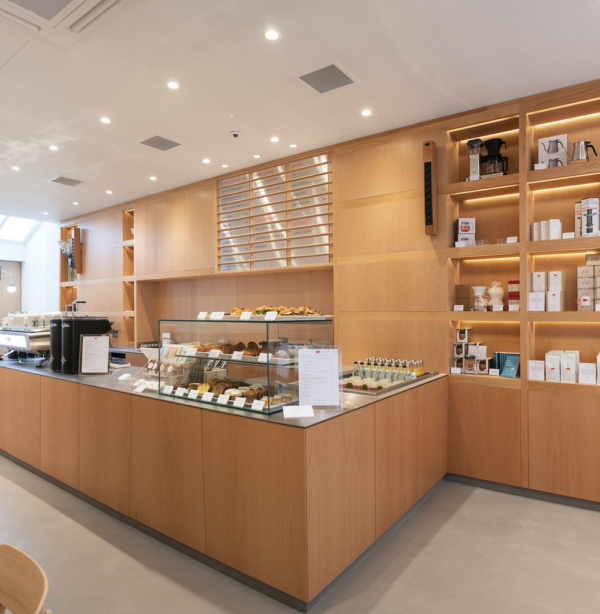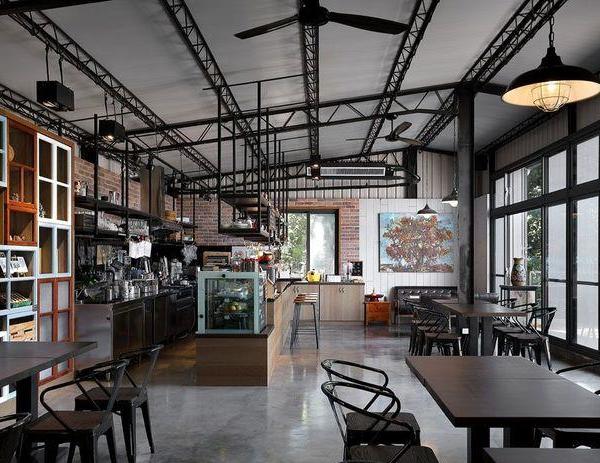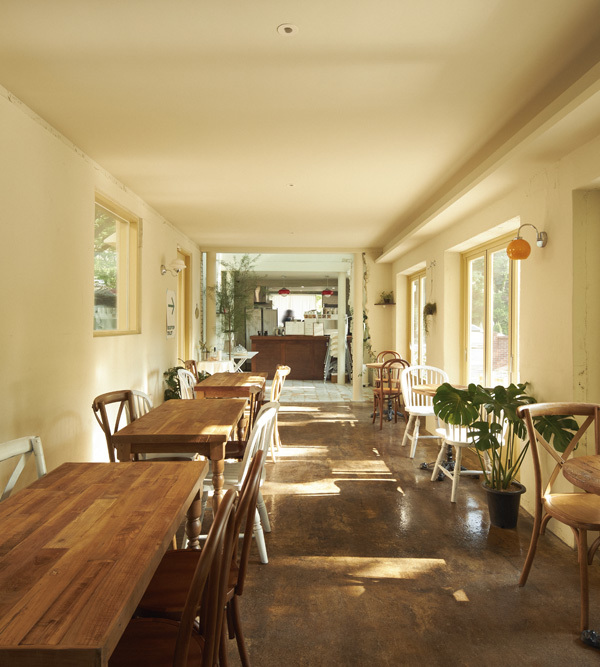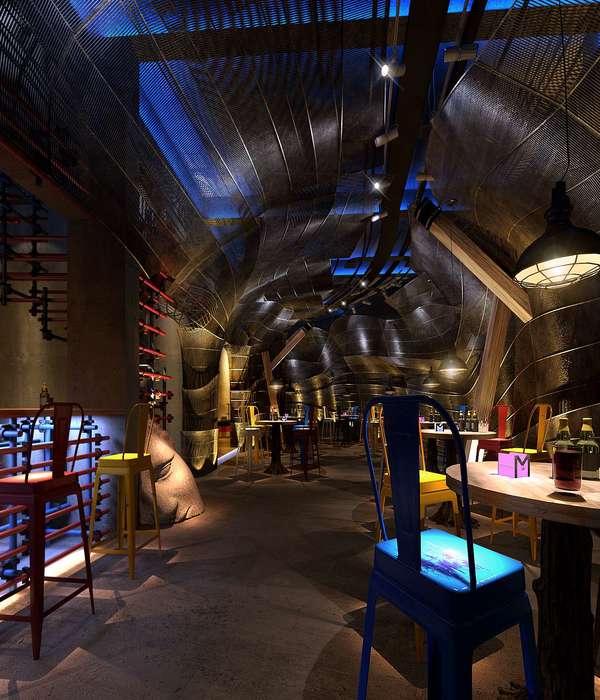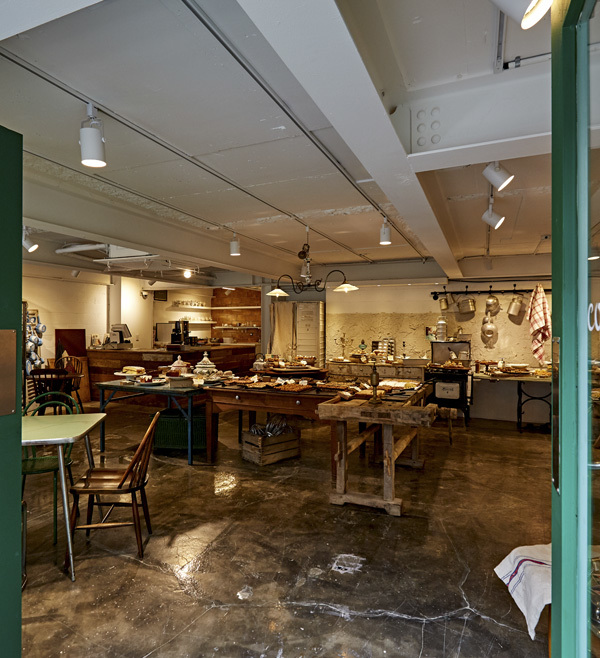Bristol Loaf 甜品店入驻英国 Bristol Beacon,Phoenix Wharf 设计
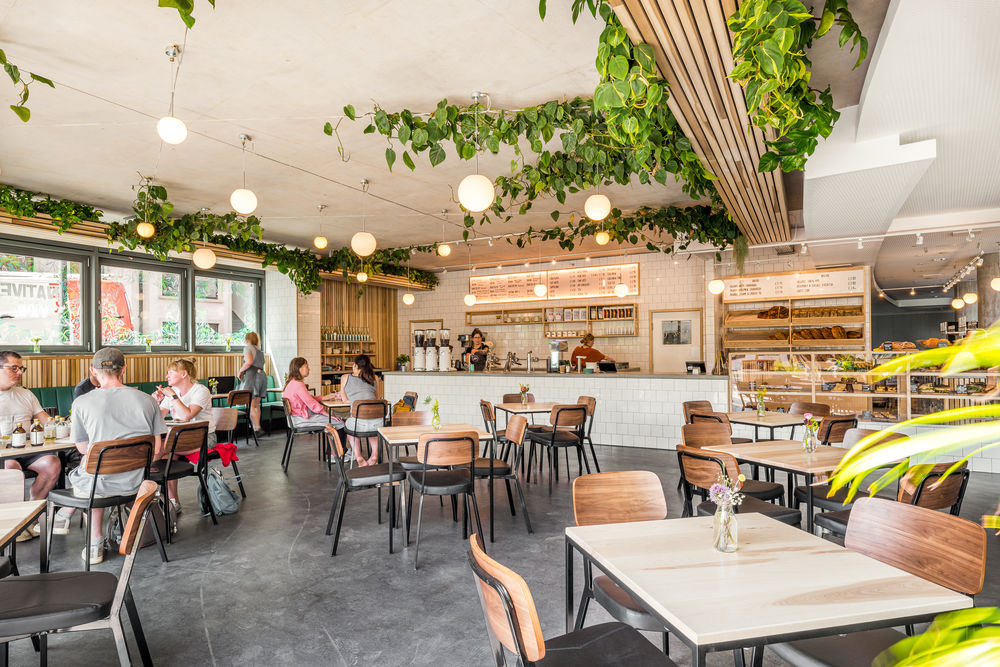
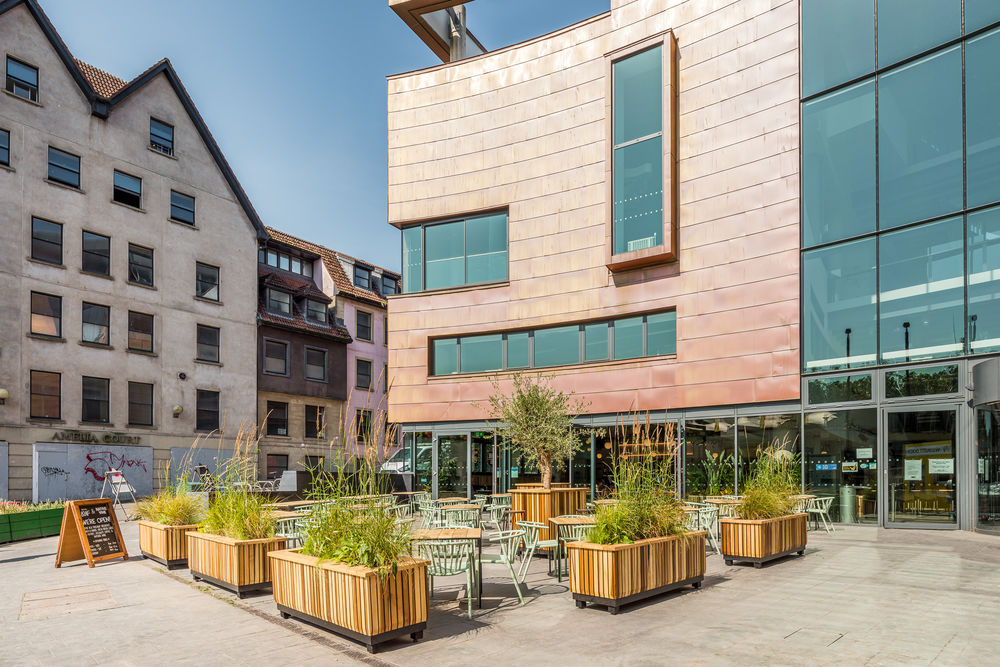
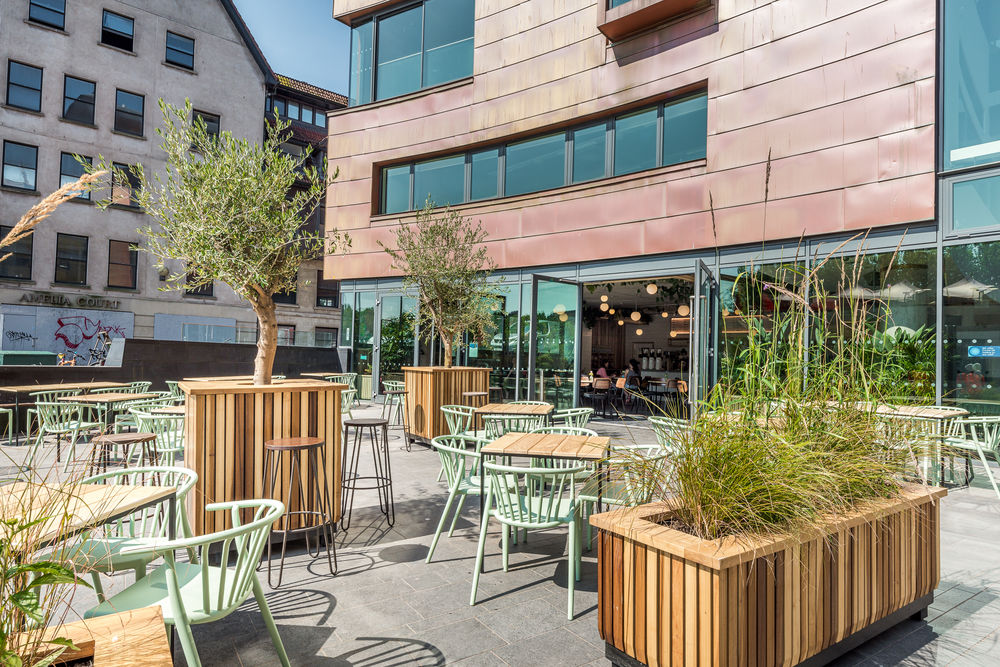
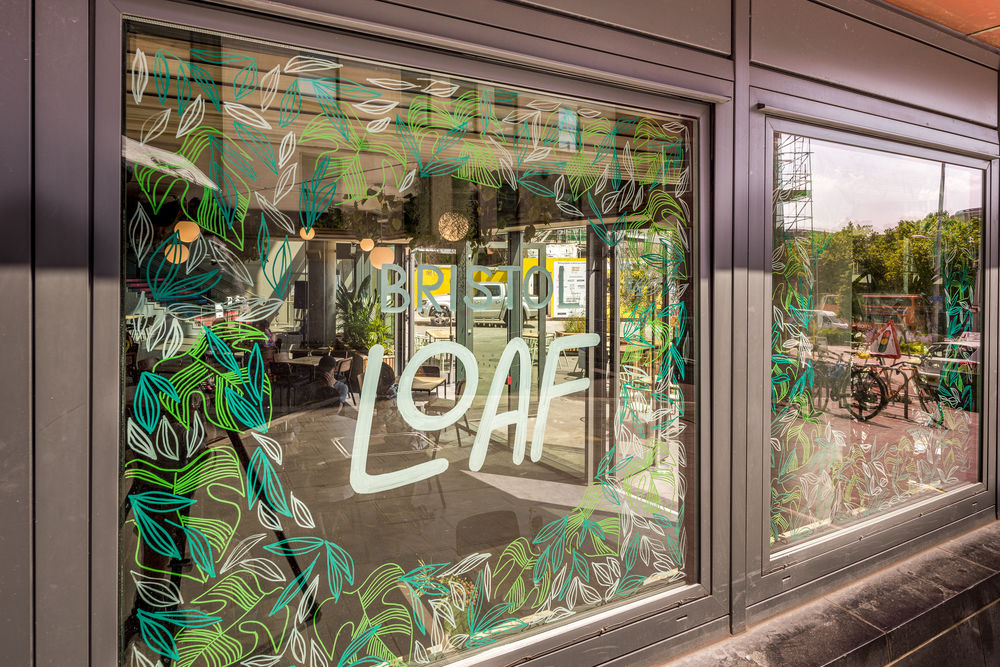
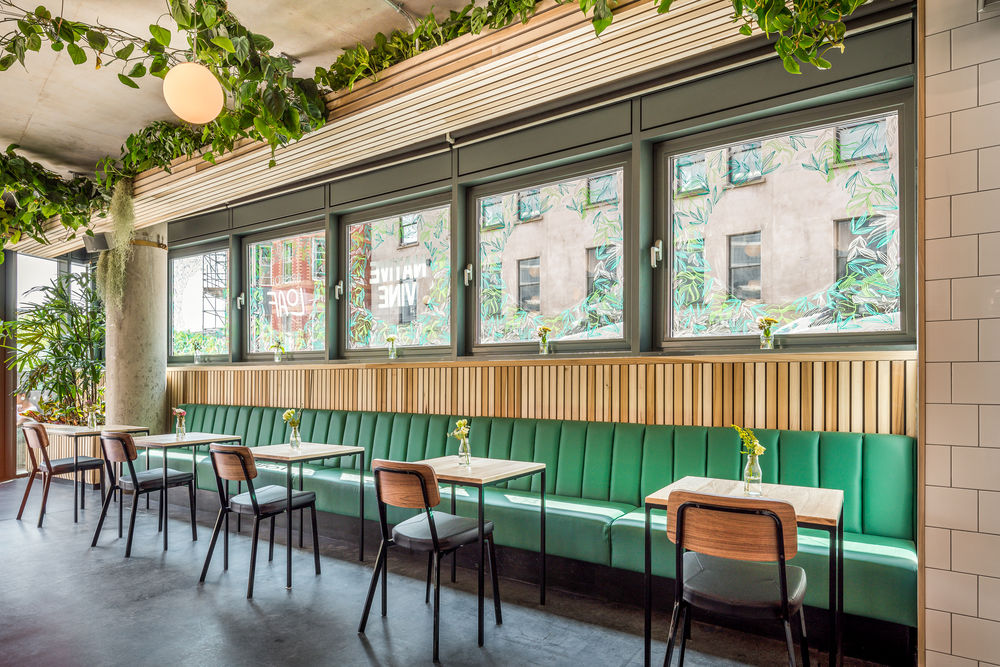


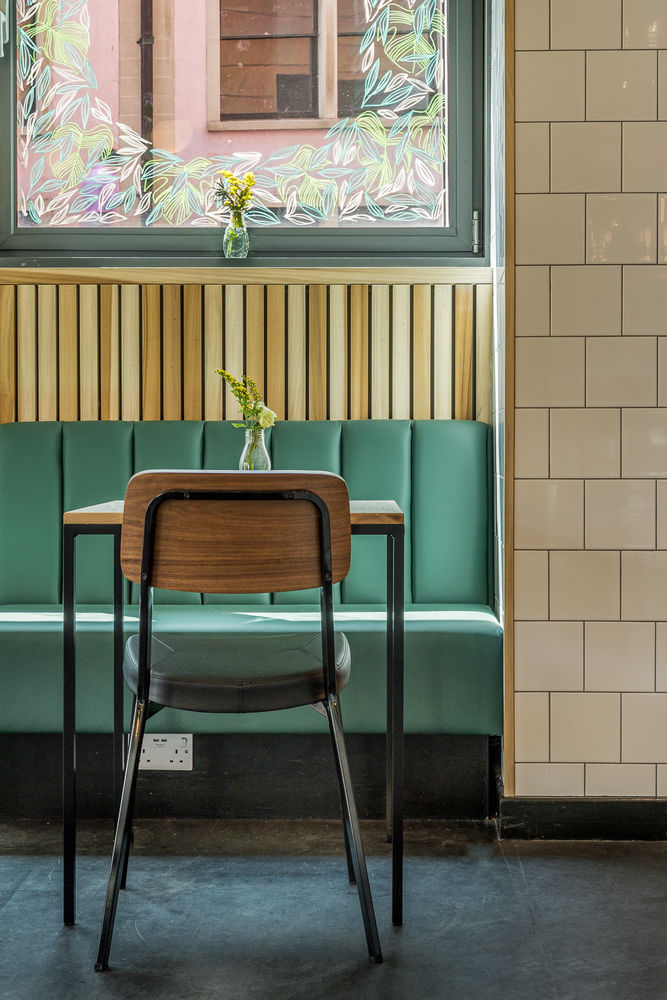

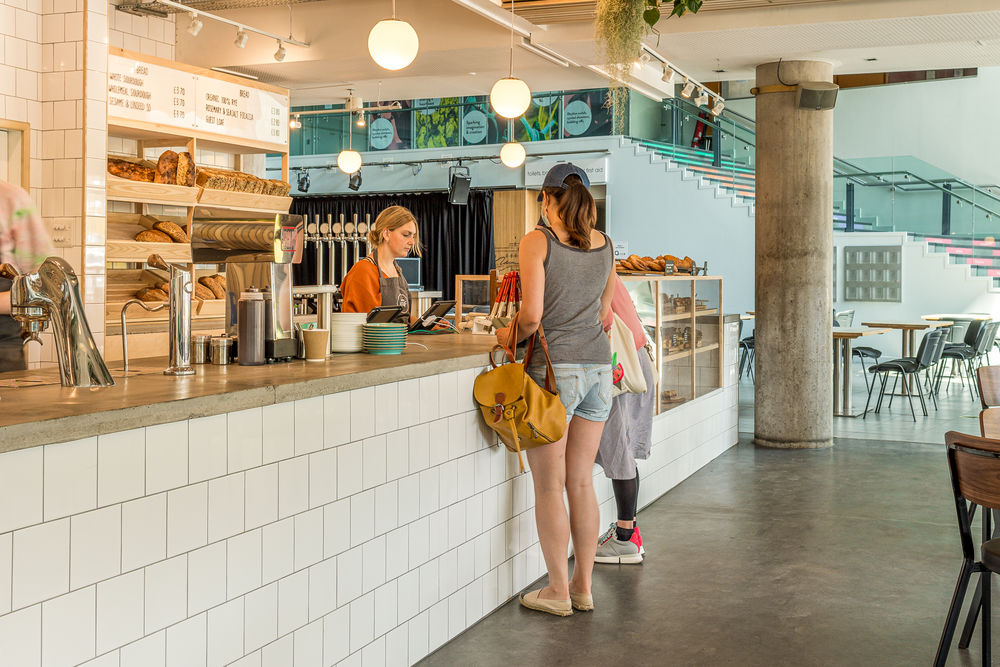


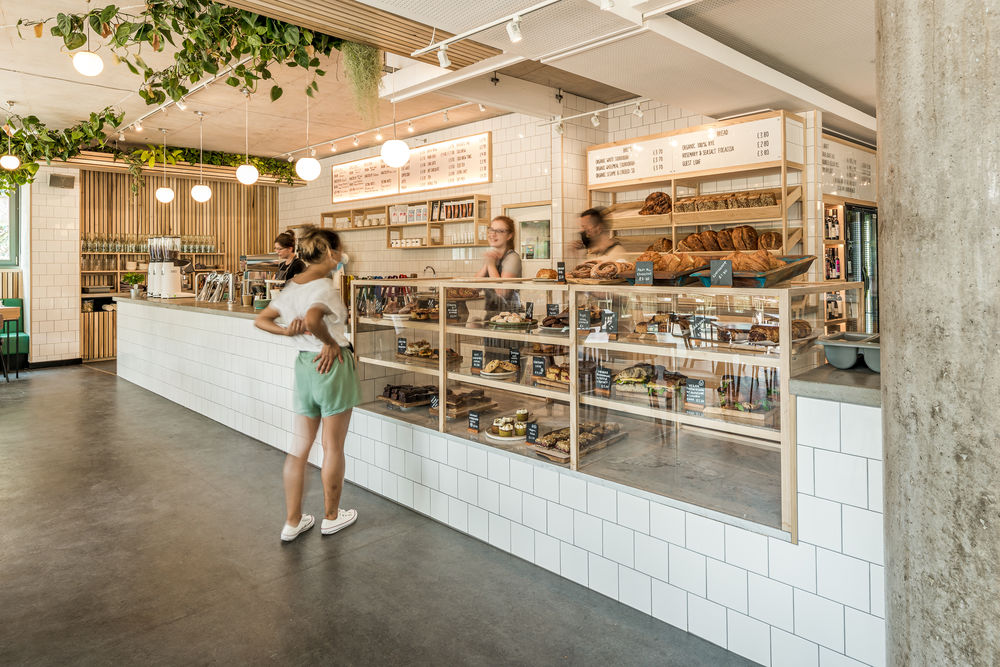


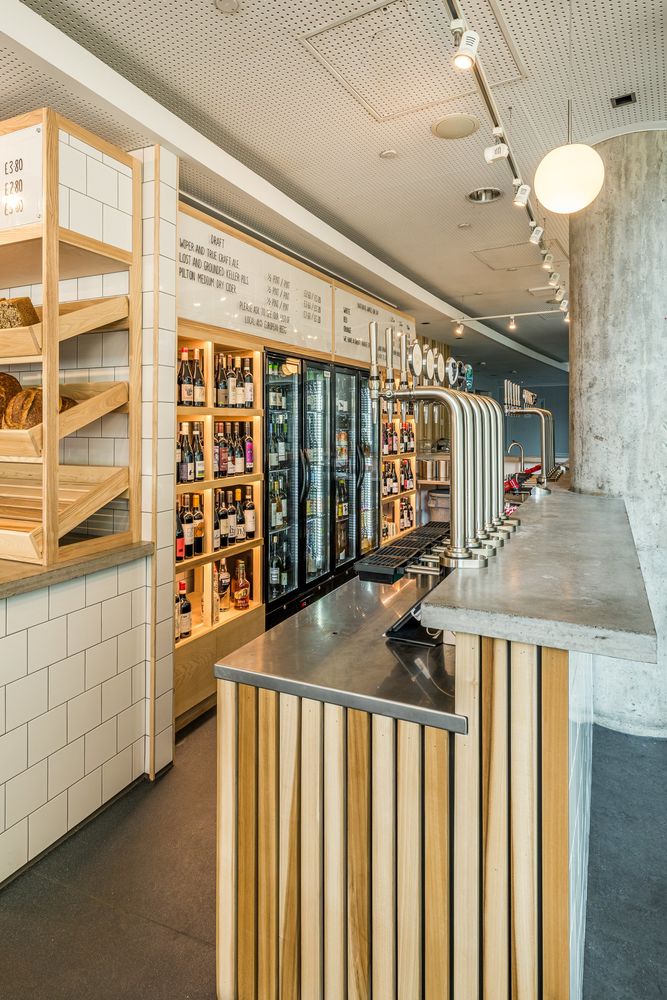
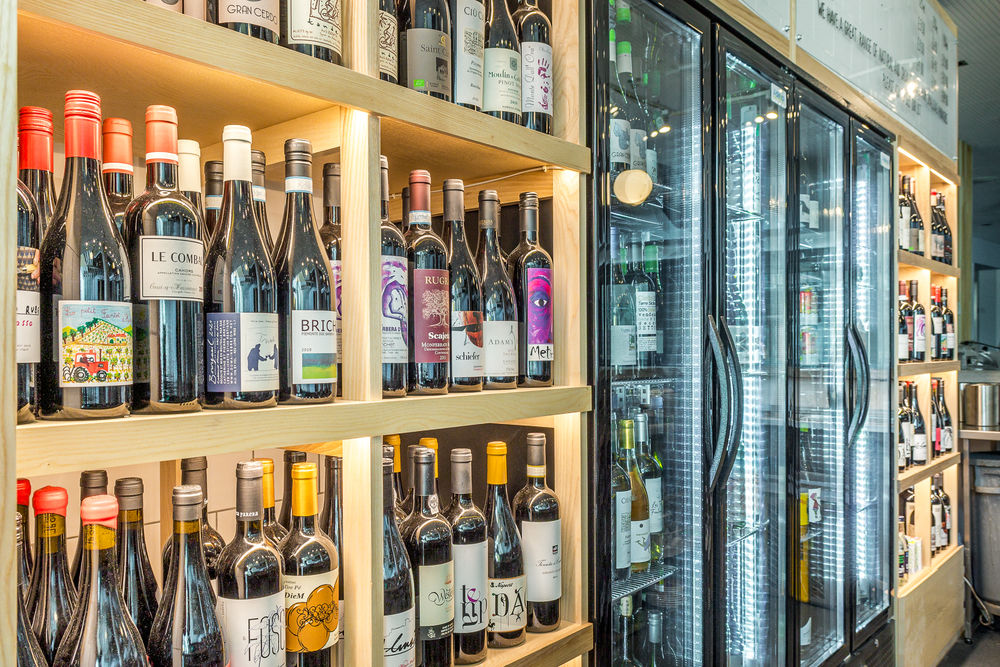
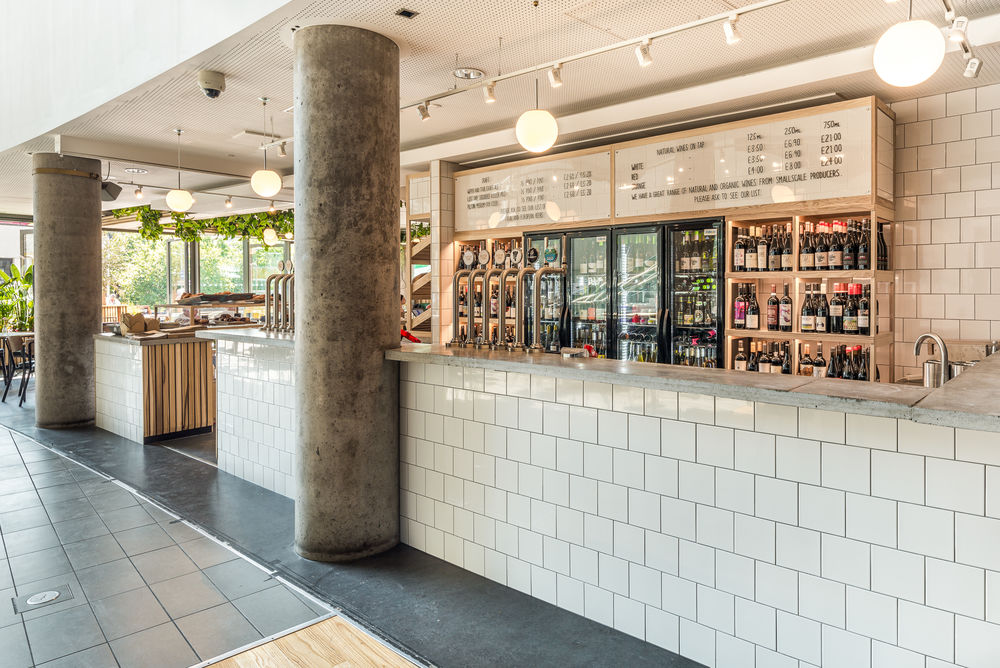
Bakery and café operator Bristol Loaf is expanding once more with the opening of a third venue in the city, within Bristol’s leading music hub Bristol Beacon. The new indoor and outdoor ground-floor offer, with over 100 covers in total, will serve day-to-night fare, including breakfast, brunch, lunch, afternoon coffee and cakes and, in the evening small-plate, modern European-style dining. The outstanding bakery items and high-quality coffee Bristol Loaf has become known for will also be available to customers for take away. The new Bristol Beacon offer will also boast a new, specialist wine bar by sister brand Native Vine, selling a carefully-curated selection of over eighty of the best organic, natural wines – including red, white, rosé, sparkling and orange wines - along with soft drinks, spirits and a number of premium beers and ciders.
The space has been designed by award-winning Bristol-based designers Phoenix Wharf, who also worked with business founder, local Bristol entrepreneur Gary Derham, on the summer 2020 opening of Bristol Loaf on Bedminster Parade, a scheme which won the Gold Award for Interior Design - Hospitality at the London Design Awards 2020.
About Bristol Loaf
Gary Derham set up Bristol Loaf in 2017 within a single-unit bakery and café in Bristol’s Redfield area, before expanding into a second unit and becoming a successful, artisanal bakery products supplier to many other local businesses, with a retail and wholesale product range that includes sourdough bread and great-looking – and tasting! - pastries. The second 2020 Bristol Loaf outlet was located within Engine House Developments in Bedminster, taking up the entirety of the site’s ground floor, with 240 sq m front-of-house space and 90 sq m back-of-house. Local operator Hugo’s Greengrocer also took a 25 sq m space within the offer alongside two other specialist producers: Bristol Loaf’s sister brand, wine specialist Native Vine and local cheesemonger Two Belly.
About Bristol Beacon
The new site is located directly to the left of the main entrance of Bristol Beacon’s foyer building, which dates from 2009 and was designed by architects Levitt Bernstein. The venue, Bristol’s leading musical hub – formerly-known as Colston Hall - has an open, informal performance space with a 2,500-head capacity, whilst a range of flexible spaces support the hall’s education, outreach and conference programmes. The original adjoining building is a Grade II-listed Victorian hall, with the overall venue owned by Bristol City Council and managed by Bristol Music Trust.
Design Concept / Target Demographic
A pre-existing bar and café area was dismantled to make way for the new offer, allowing the Phoenix Wharf team to design a completely new look and feel for the space, building on and linking to the design language of the Bedminster site, which had in turn evolved from the original Redfield venue. This time, the look and feel were elevated slightly to fit both the cultural surrounds and address a slightly different customer demographic. Where the first two venues appealed mainly to local residential and family customers, the new commercial area location meant the new site would be catering to office workers looking for a grab’n’go breakfast or lunch or potentially using the venue for daytime business meetings, as well as to the area’s large student community, more likely to use the café for relaxed weekend brunches, whilst the evening audience would centre on the bar offer and pre-event dining.
‘When it came to the building fabric’ Phoenix Wharf Associate Creative Director Emma Carter commented, ‘both the existing floor and ceiling are in concrete, which was a gift for us because it allies perfectly with Bristol Loaf’s established design language. The brand’s tactile, rustic, ‘anti-slick’ design treatment continues with white tiling, used for the servery and bar fronts, plus the extensive use of solid ash timber for shelving, storage and wall panelling, including the sides of the bar. Extensive planting also features once again, both from the overhead timber troughs that house hanging plants, as well as in smaller planters that punctuate key areas internally and are used to border the external terrace, where two standalone olive trees also feature.’
Design Walk-through
The space encompasses a 125 sq m external terrace seating area, with over 50 covers, which is linked to the 144 sq m indoor space (269 sq m including the kitchen space) in the summer months via two fully-opening doors set within the glazed frontage.
Directly to the left of the building’s main entrance is Bristol Loaf’s indoor seating area, where loose and inset furniture arrangements offer 42 covers. Locally-manufactured, bespoke timber tables are used for both the indoor and outdoor areas, featuring a notably thin profile and four black metal legs, allowing for easy stacking and storage of the outdoor tables at night. The Cult Living Hipster Chair, made from a powder-coated black metal frame and oak with a walnut veneer to the back and seat, has been chosen for the indoor space, whilst Nordic-style, fan-backed Sklum Ivor Garden Chairs in Celdon Green are used for the exterior space. A 6m-long banquette seat, upholstered in green faux-leather to match the indoor planting, runs along the left side of the indoor space and offers 12 additional covers.
The main servery, located directly facing the main entrance to the venue, takes the form of a monolithic, 9m-long counter with a pale concrete top. Coffees are also made here, but for the first time here the coffee machines (by modbar) are integrated underneath the counter so that baristas can address customers directly without any machines obscuring their view. A pay-station is located two-thirds of the way along the counter, whilst a chiller unit takes up the remainder of the space. A timber-clad bread display unit is also located to the rear.
‘Lighting is one aspect of the design where a slight ‘elevation’ can be seen in this particular venue’, Emma Carter commented. ‘The paper globes at Bedminster have been replaced here with elegant glass domes, the Nordlux Café Glass Glove Pendant, which create a real sense of intimacy.’
Bristol Loaf Founder Gary Derham commented on the new venue and on working with Phoenix Wharf ‘It was great to work with Phoenix Wharf again on this project and to continue to develop our working relationship. The design team couldn’t have been more flexible and creative in bringing Bristol Loaf’s core values and material language to this great site within a high-profile building context, as well as being fastidious in their attention to detail. As a business that likes to work locally and sustainably with the best companies in the region, it’s fantastic to have an outstanding Bristol-based design resource like Phoenix Wharf to partner with.’

